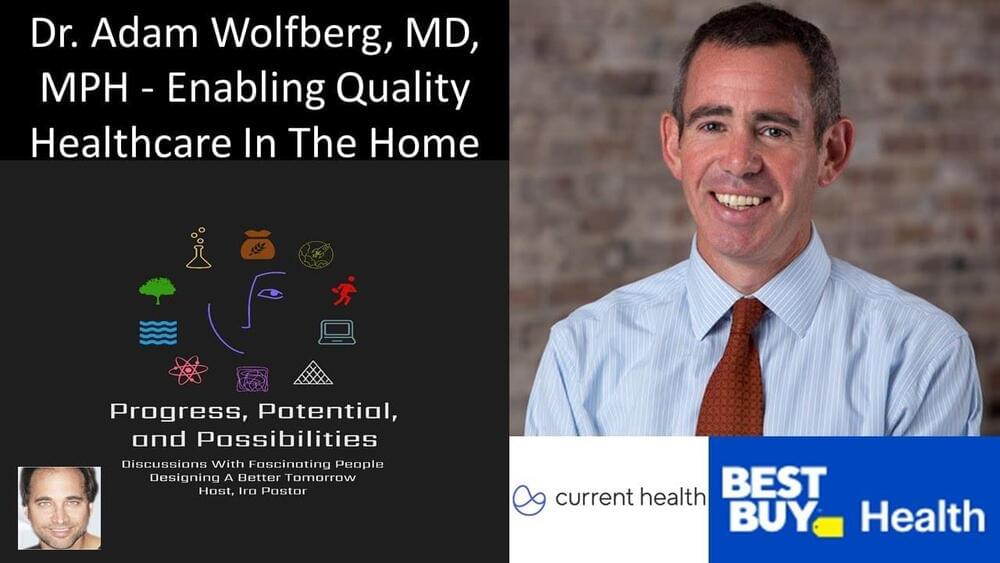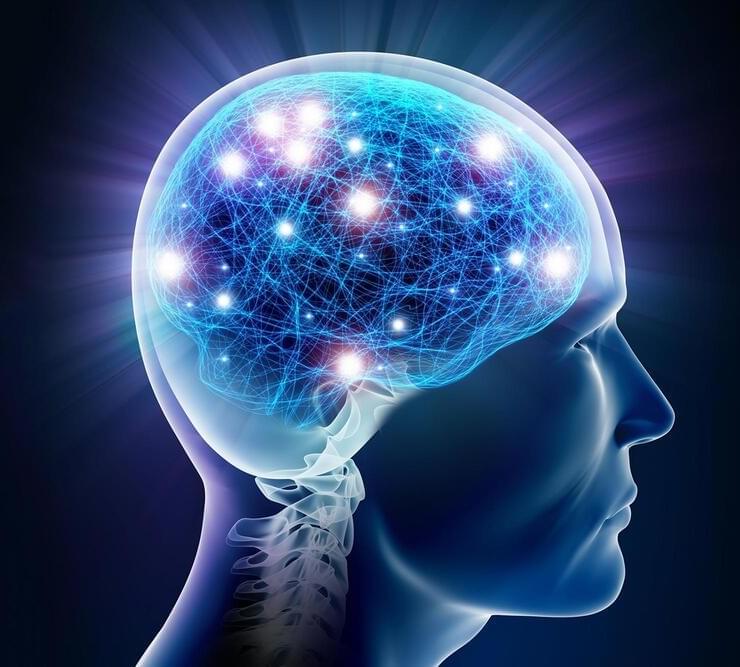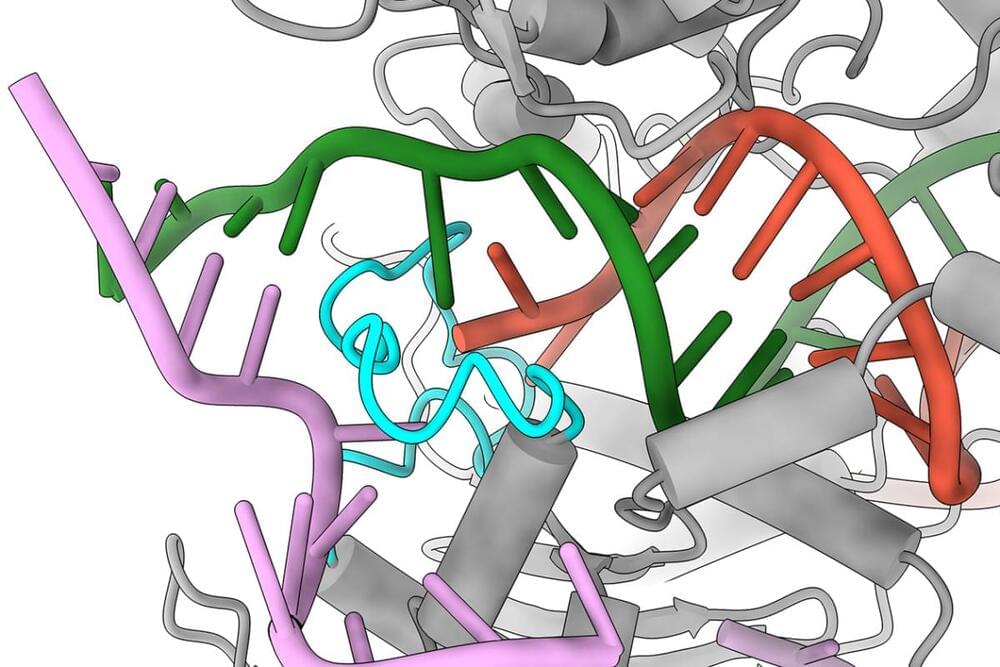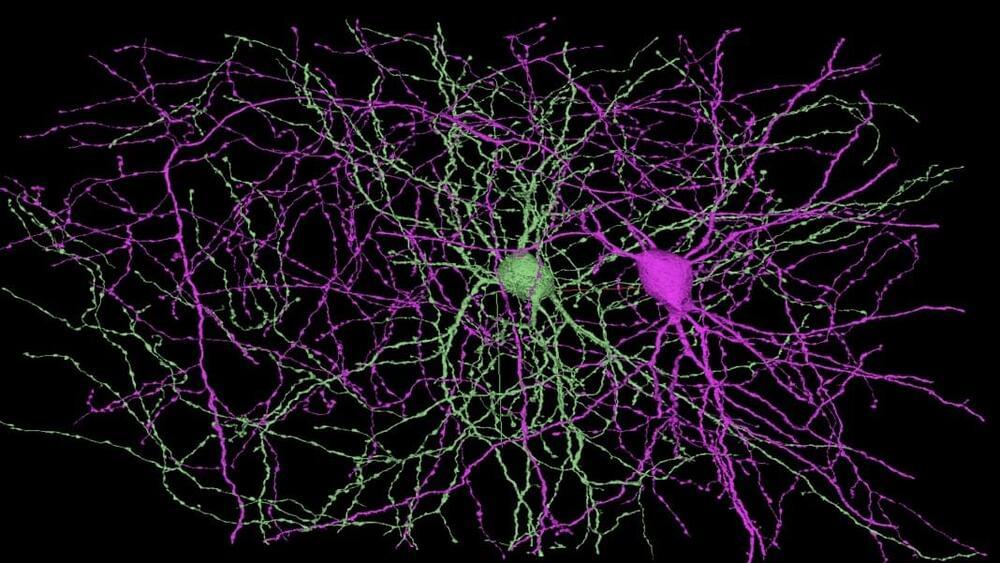Archive for the ‘health’ category: Page 161
Mar 9, 2022
Could gene therapy soon curb muscle loss in the elderly?
Posted by Kelvin Dafiaghor in categories: biotech/medical, health
Researchers at NTNU have managed to restore muscle function in older mice with muscle loss using advanced gene therapy. The hope is that this method might eventually be used on humans to prevent severe loss of muscle mass.
“Gene therapy is the most effective method to be able to give these people the same health benefits you normally get with physical exercise,” says Moreira, who has been involved in the new research. He is part of the Cardiac Exercise Research Group (CERG).
Mar 7, 2022
Researchers Discover How the Human Brain Separates, Stores, and Retrieves Memories
Posted by Jose Ruben Rodriguez Fuentes in categories: biotech/medical, health, neuroscience
NIH-funded study identifies brain cells that form boundaries between discrete events.
Researchers have identified two types of cells in our brains that are involved in organizing discrete memories based on when they occurred. This finding improves our understanding of how the human brain forms memories and could have implications in memory disorders such as Alzheimer’s disease. The study was supported by the National Institutes of Health’s Brain Research Through Advancing Innovative Neurotechnologies (BRAIN) Initiative and published in Nature Neuroscience.
“This work is transformative in how the researchers studied the way the human brain thinks,” said Jim Gnadt, Ph.D., program director at the National Institute of Neurological Disorders and Stroke and the NIH BRAIN Initiative. “It brings to human neuroscience an approach used previously in non-human primates and rodents by recording directly from neurons that are generating thoughts.”
Mar 7, 2022
Drugs pollute rivers, add to resistance crisis
Posted by Len Rosen in categories: biotech/medical, chemistry, health
Drugs are polluting rivers and adding to the resistance crisis as well as affecting riverine ecosystems.
Pharmaceutical pollution in the world’s rivers is threatening environmental and human health and the attainment of UN goals on water quality, with developing countries the worst affected, a global study warns.
Active pharmaceutical ingredients (APIs) could be contributing to antimicrobial resistance in microorganisms, and may have unknown long-term effects on human health, as well as harming aquatic life, according to the report published in Proceedings of the National Academy of Sciences.
Continue reading “Drugs pollute rivers, add to resistance crisis” »
Mar 4, 2022
Protein tweak makes CRISPR gene editing 4,000 times less error-prone
Posted by Shubham Ghosh Roy in categories: bioengineering, biotech/medical, genetics, health
The CRISPR gene-editing system is a powerful tool that could revolutionize medicine and other sciences, but unfortunately it has a tendency to make edits to the wrong sections of DNA. Now, researchers at the University of Texas at Austin have identified a previously unknown structure of the protein that drives these mistakes, and tweaked it to reduce the likelihood of off-target mutations by 4,000 times.
CRISPR tools use certain proteins, most often Cas9, to make precise edits to specific DNA sequences in living cells. This can involve cutting out problematic genes, such as those that cause disease, and/or slotting in beneficial ones. The problem is that sometimes the tool can make changes to the wrong parts, potentially triggering a range of other health issues.
And in the new study, the UT researchers discovered how some of these errors can happen. Usually, the Cas9 protein is hunting for a specific sequence of 20 letters in the DNA code, but if it finds one where 18 out of 20 match its target, it might make its edit anyway. To find out why this occurs, the team used cryo-electron microscopy to observe what Cas9 is doing when it interacts with a mismatched sequence.
Mar 3, 2022
New Brain Map Charts Every Component in the Biological Universe
Posted by Genevieve Klien in categories: biotech/medical, health, robotics/AI
It’s easy to see why: as shockingly powerful mini-processors, neurons and their connections—together dubbed the connectome—hold the secret to highly efficient and flexible computation. Nestled inside the brain’s wiring diagrams are the keys to consciousness, memories, and emotion. To connectomics, mapping the brain isn’t just an academic exercise to better understand ourselves—it could lead to more efficient AI that thinks like us.
But often ignored are the brain’s supporting characters: astrocytes—brain cells shaped like stars—and microglia, specialized immune cells. Previously considered “wallflowers,” these cells nurture neurons and fine-tune their connections, ultimately shaping the connectome. Without this long-forgotten half, the brain wouldn’t be the computing wizard we strive to imitate with machines.
In a stunning new brain map published in Cell, these cells are finally having their time in the spotlight. Led by Dr. H. Sebastian Seung at Princeton University, the original prophet of the connectome, the map captures a tiny chunk of the mouse’s visual cortex, less than 1,000 times smaller than a pea. Yet jam-packed inside the map aren’t just neurons; in a technical tour de force, the team mapped all brain cells, their connections, blood vessels, and even the compartments inside cells that house DNA and produce energy.
Mar 3, 2022
What might explain Huntington’s Disease?
Posted by Len Rosen in categories: biotech/medical, chemistry, health, neuroscience
Could 2 B vitamins help those suffering with Huntington’s Disease?
T he Huntington’s disease (HD) community has recently experienced setbacks, but a new research report may reignite hope, from an unexpected source: the vitamin thiamine (B1), with help from biotin (B7). The investigators, from several institutions in Spain and UCLA, write in Science Translational Medicine, “Together, these results demonstrate a thiamine deficiency in HD brain and suggest that individuals with HD might benefit from thiamine and/or biotin supplementation therapy.”
Health care providers may suggest certain supplements for HD patients, based perhaps on a deficiency (vitamins C, B12, E) in the blood, or for general health. But the new findings are different. The researchers didn’t set out to detect a vitamin deficiency, but instead probed the messaging within cells in the HD brain, which led them to a biochemical juncture that revealed the thiamine/biotin connection.
Continue reading “What might explain Huntington’s Disease?” »
Mar 3, 2022
China complains of close encounters with SpaceX Starlink satellites, Conducts preventive maneuvers to avoid collisions
Posted by Chima Wisdom in categories: Elon Musk, health, internet, satellites
SpaceX Starlink satellites twice approached the Chinese Space Station (CSS) in orbit, prompting China to warn of “close contacts” with Elon Musk’s space program.
Both the July 1 and October 21 incidents prompted the Chinese spacecraft to perform collision avoidance maneuvers. The Chinese team told the UN secretary-general in a diplomatic statement they provided earlier this month that on both occasions there were crew members on board, “which might represent a hazard to the lives or health of astronauts.”
Since its launch on April 29, the CSS “Tiangong” has maintained a nearly circular orbit at a height of around 390 kilometers with an orbital inclination of about 41.5 degrees.
Mar 2, 2022
I’m A Neuroscientist: These Are My Nonnegotiables For A Positive Mood Long Term
Posted by Genevieve Klien in categories: health, neuroscience
Lighten your mood and melt away negativity.
Daniel Amen, M.Dhis nonnegotiable brain health tips to help you become a happier person. Here, his practical advice for a positive mood long term.
Mar 1, 2022
Dr. Adam Wolfberg, MD, MPH — Chief Medical Officer, Current Health — Quality Healthcare In The Home
Posted by Ira S. Pastor in categories: biotech/medical, health, information science, wearables

Is the Chief Medical Officer at Current Health (https://currenthealth.com/), a Best Buy Health company (https://healthcare.bestbuy.com/) and part of the American multinational consumer electronics retailer.
Current Health is an organization that enables the delivery of healthcare services in the home to enable healthcare organizations to deliver high-quality, patient-centric care at a lower cost. The company integrates patient-reported data with data from biosensors – including their own continuous monitoring wearable devices – to provide healthcare organizations with actionable, real-time insights into the patient’s condition. Leveraging clinical algorithms that can be tailored to the individual patient, Current Health identifies when a patient needs clinical attention, allowing organizations to manage patient care remotely or coordinate in-home care via integrated service partners. The Current Health platform brings together tele-health capabilities, patient engagement tools, and in-home connectivity to provide a single solution to manage all care in the home. Dr. Wolfberg also leads implementation and account management at the organization.
















